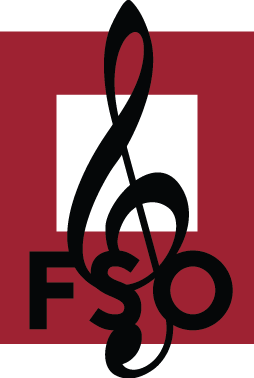
Casey Perley is no stranger to starting over — and music makes it easy. The harpist has been in more than 15 permanent orchestras and ensembles with a soloist debut at 13 years old.
Born in Boston, New York, Casey moved to New Haven, Connecticut, for her undergrad in molecular biophysics and biochemistry at Yale University. After graduation, she moved again to become a research tech at the Massachusetts Institute of Technology in Cambridge, Massachusetts.
Prior to her doctorate studies in microbiology at Duke University in Durham, North Carolina, she played around the world, including Europe and South America.
During that time, she met her husband while camping out for basketball tickets. Because he’s a U.S. Army infantry officer and she’s engaged in postdoctoral research at Fort Detrick, the two-time GRAMMY nominee settled with the FSO for the last two years.
Who’s your dream conductor to play under?
“I played in a youth orchestra for five years when I was in high school, and the conductor was…Dr. Flo. He was incredible. He taught me everything I know about playing the harp in an orchestra. He always challenged me.
There were always pieces that he was picking because they had great harp parts, even if they were right on the edge of my ability, and I would…love to play under him again as an adult because he taught me so much. It would be fun to go back with everything I know now and really get to appreciate him again.”
Who inspires you the most?
“I like to take different parts of different people, which works really well for me because I’m a scientist and…a musician. Different people are going to inspire me differently.
Scientifically…pioneering female scientists who did incredible work at a time when women weren’t as represented in science as they are now and have made it a point to mentor women scientists.
Then I look at harpists who I’ve played with or studied under. I like to take little bits from people.”
What was your first instrument?
“I started violin at 2½ [years old]. My mother and her best friend from grad school had kids about the same age, and they figured group lessons. This was when all the research about music and science was coming out.
By the time I was 6 [years old], I could read music, and I liked to practice, so my parents were like, ‘We are onto something here. You should take piano.’
We have a piano in our living room that no one plays, and it was one of the few temper tantrums I threw as a child.
I didn’t want to take piano because everyone played violin and piano, and I didn’t want to be like everyone else, so we came to a compromise, which was I had to take another instrument, but I got to pick what it was.
One day, I went to my mother and said, ‘Mommy, what’s your favorite instrument?’
And she said, ‘I like the harp because angels play the harp.’
I was like, ‘I’m going to play the harp.’”
When and where was your first concert?
“I was about 3 years old. It was [at] Kleinhans Music Hall. I had my little foot chart for Suzuki, put it down, put my feet on it. I played Mississippi Hot Dog with my class. We put our violins back under our arms, and we bowed.
Nowadays, when you start violin, you have these cardboard boxes that look like violins. 30 years ago, not so much.
In my case, [I started off with] a margarine box wrapped in pink wrapping paper with dancing teddy bears, a…blue plastic ruler, and a wooden dowel.”
Why do you love music?
“It’s a great counterpoint…with what I do for a living. I can’t tell you how many times something isn’t working in lab technically or the data doesn’t make sense, and I go home and I practice.
When I’m done practicing, I’m like, ‘Oh. I got it,’ or I at least know what to try. It’s a way to…exercise the other side of my brain. I’m a much better scientist when I’m playing. I’m much happier when I’m playing.”
How has music changed your life?
“I don’t remember a life that didn’t have music because I’ve been playing since I was…2½ [years old]. Some of my earliest memories are…playing on the violin at the talent show at preschool. Our stage was a turned-upside sandbox, and I still remember!
It’s a way for me, given that I move around a lot, to always find community and…friends, but it’s just something that I love because it’s always been a part of me, and I can’t imagine not having it.”
To hear more of Casey, grab tickets to our next concert, Mozart On The Civil War Trail, on Feb. 11, 2018 at 3 p.m.
